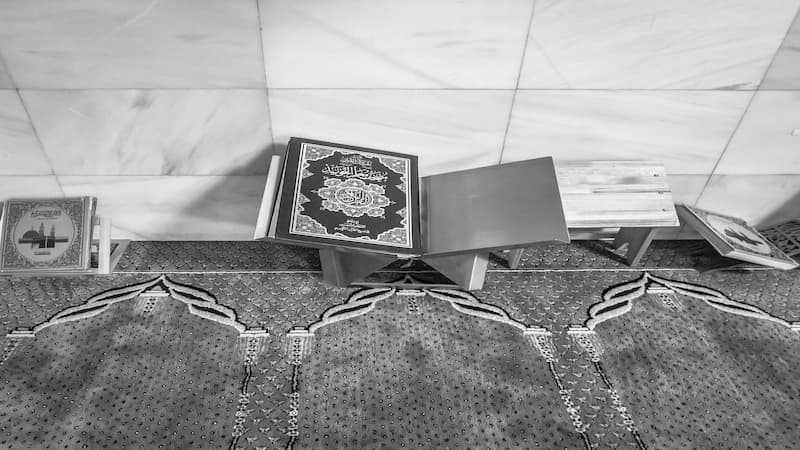The Life and Works of Quṭb-ud-Dīn Shāh Walīullāh Dehlawī
About The Course
Quṭb-ud-Dīn Shāh Walīullāh Dehlawī (d. 1762/1176), was an 18th century reviver, Islamic scholar, muhaddith, historiographer, politician, bibliographer, theologian, and philosopher.
This course will present the life and works of Quṭb-ud-Dīn Shāh Walīullāh Dehlawī, relating his major influences on current thinking on theory of knowledge, spirituality, politics, education, philosophy, psychology and science. The purpose is to acquaint students with these classical and traditional models of thinking and to drive motivation and the passion of learning, writing, and thinking in the ummah. Shāh Walīullāh was a true role model whose works have influenced great Muslim and nonMuslim thinkers even in the post-modern age. Students will learn about Shāh Walīullāh’s main influencers, reasons for his success and how we can continue the legacy of a man who gave so much to the Muslim world and for generations in the future.
One of the most outstanding Islamic thinkers South Asia ever produced – Shah Wali Allah– passed away leaving behind a colossal legacy. Shah Waliullah had exceptional talent, ability of mind and spiritual purity. An outstanding scholar of Islamic sciences, who lived in the age of crisis and intellectual degeneration. He evolutionized the philosophical, social and economic ideas within the framework of Islam.
Course Team

Shaykh Haroon Sidat
Syed Huzaifah Ali Nadwi
12 Live Online Sessions
Duration : 4+ months
Saturdays, 2 PM - 03.30 PM (London, UK)
Video Recordings Available

Mobile App
Live Q&A
Certificate
Enrol Now
Starts on 23rd July 2022
Course Fee:
Pay in Full: £79.99 £59.99
(Providing upto 30% scholarship on this Course)
Pay In 4 Installments: £19.99 £12.49 per month
Registration Deadline:
29th July 2022
Al Balagh Scholarship
AlBalagh Scholarship is available for learners who cannot afford the fee.
Sessions
Session 1
Introduction – Importance of Learning about Shāh Walīullāh
Session 2
The Life of Shāh Walīullāh 3 Important Works of Shāh Walīullāh
Session 3
Shāh Walīullāh’s Theory of Human Society
Session 4
Famous and Wise Quotes of Shāh Walīullāh
Session 5
Shāh Walīullāh’s Programme of Spiritual Development
Session 6
Shāh Walīullāh Theory of Politics
Session 7
Contribution of Shāh Walīullāh to Socio-economic Reform
Session 8
Contribution of Shāh Walīullāh in Knowledge
Session 9
Contribution of Shāh Walīullāh in Psychology
Session 10
Contribution of Shāh Walīullāh in Philosophy
Session 11
What is the Legacy of Shāh Walīullāh
Session 12
Lessons Learnt
Course Overview
Besides being a deeply spiritual and noted academic, Shah Waliullah was also politically astute. He helped create a united Muslim front to oppose the rising Marhatta power, which threatened the already deteriorating Muslim influence in the northern part of India.
Shah Waliullah not only had a keen grasp of regional and national politics; he also clearly understood the profound impact of economics. Based on what he saw, he promoted the concept of socioeconomic equilibrium, and he deplored the accumulation of wealth, viewing it essentially as the proverbial root of all evil in the world. Further, he advocated a social order that embraced Islamic principles of equality, fraternity, and brotherhood.
In South Asia, understanding Islam as a socio religious movement is incomplete without studying the work of Shah Wali Allah. As the eminent Muslim Philosopher Allamah Iqbal writes “He was the first Muslim to feel the urge for rethinking the whole system of Islam without breaking traditions of the past.”(Reconstruction of Religious Thought in Islam) Both using his academic as well his spiritual talent he inspired generations of ‘ulama, scholars, and left a great legacy. He shaped the Islamic thought in South Asia. Almost every school of thought and Islamic movement in Islam accepts him as an authority and takes lineage in South Asia from his works.
Prominent Muslim scholar and historian Shibli Naumani writes “The contribution of Shah Wali Allah overshadows men like al-Ghazali and al-Razi. While the exposition of earlier mutakallimin (scholastic theologians) exclusively focuses on the questions of belief, Shah went beyond this narrow scope of theology” (Al Kalam).He was a great administrator, also who successfully administered his father’s madrasa alRaheemiya. He re-oriented educational policy and made it a bridge between classical and modernist thought.
Shah Abdul Hay Al Hasani writes “In knowledge and natural philosophy Shah Wali Allah excelled both Farabi and Ibn Sina (Islamiya Fi’l Hind). Nawab Sidiq Hassan Khan Bhopali writes, “If Shah had flourished in the distant past, he surely would have been given the title of and would have been called chief head of imams’ (Mafhamaat).
As his letter to Ahmad Shah Abdali suggests, Shah Waliullah exerted a great deal of influence through his use of the written word. A prolific writer, he assumed a lifetime task of producing standard works on Islamic learning. Within a period of 30 years, he wrote 51 books (23 in Arabic and 28 in Persian). Today, some of his works are still regarded as being unmatched in the entire sphere of Islamic literature.
Scholars tend to classify Shah Waliullah’s written works into six categories: those works that deal with the Holy Quran (which includes his Persian translations), those that deal with Hadith, works related to “Fiqh” (or Islamic jurisprudence), works based on mysticism, works dealing with Muslim philosophy and Ilm-i-Kalam, and, finally, the writings that focused on the Shia-Sunni division that had become quite acute during his time. His most famous works include Fath al-Rahmaan Fi Tarjumatul Qur’an, a translation of the Holy Quran in Persian, and Al Fauz al-Kabir Fi Usul al-Tafsir, a booklet written in the Persian language that communicates the core of the Holy Quran and its rules for interpretation. Many regard his most renowned work to be the Hujjatullah-il-Balighah, a two-volume manuscript penned in Arabic that detailed jurisprudence for the Hadith, as well as aspects of Islam shared in all Muslim countries. It is still taught in seminaries.
Through his writings and his teachings, as well as the life he led, Shah Waliullah Dehlavi inspired subsequent generations of Islamic followers who carried on his reformation mission after his death. Today people consider his writings to represent his most important achievement, especially his translation of the Holy Quran into a popular language, which made that religious text more accessible to a greater number of people.
Many of his theories relating to economics and socialism are now deemed revolutionary, and he is considered to be a forerunner to Marx. Shah Waliullah criticized the exploitation of the poor and saw it as a fomenter of bloody revolution, which he deplored. Revolution, he felt, should be of a peaceful and intellectual nature, and he believed that an intellectual revolution needed to precede any lasting form of political change. In Izalat al-Khifaa, another of his best-known works, Shah Waliullah fully described the idea of the political revolution that he envisioned.
Shah Waliullah’s ideas and values no doubt came in response to the time in which he was born, which has been described as an era of decadence. His ideal vision for the Muslim society was one where all individuals enjoyed complete freedom and rulers based their decisions on the Holy Quran. He was critical of the idle rich, such as the Mughal rulers and India’s nobility.


Key Objectives
This course aims to:
- Learn about the life and works of Shāh Walīullāh.
- Learn about his contribution to many of the current modern sciences.
- Learn about what motivated him and how we can imbibe these qualities in us.
- Learn how we can continue his legacy with similar role models for our future generations.




